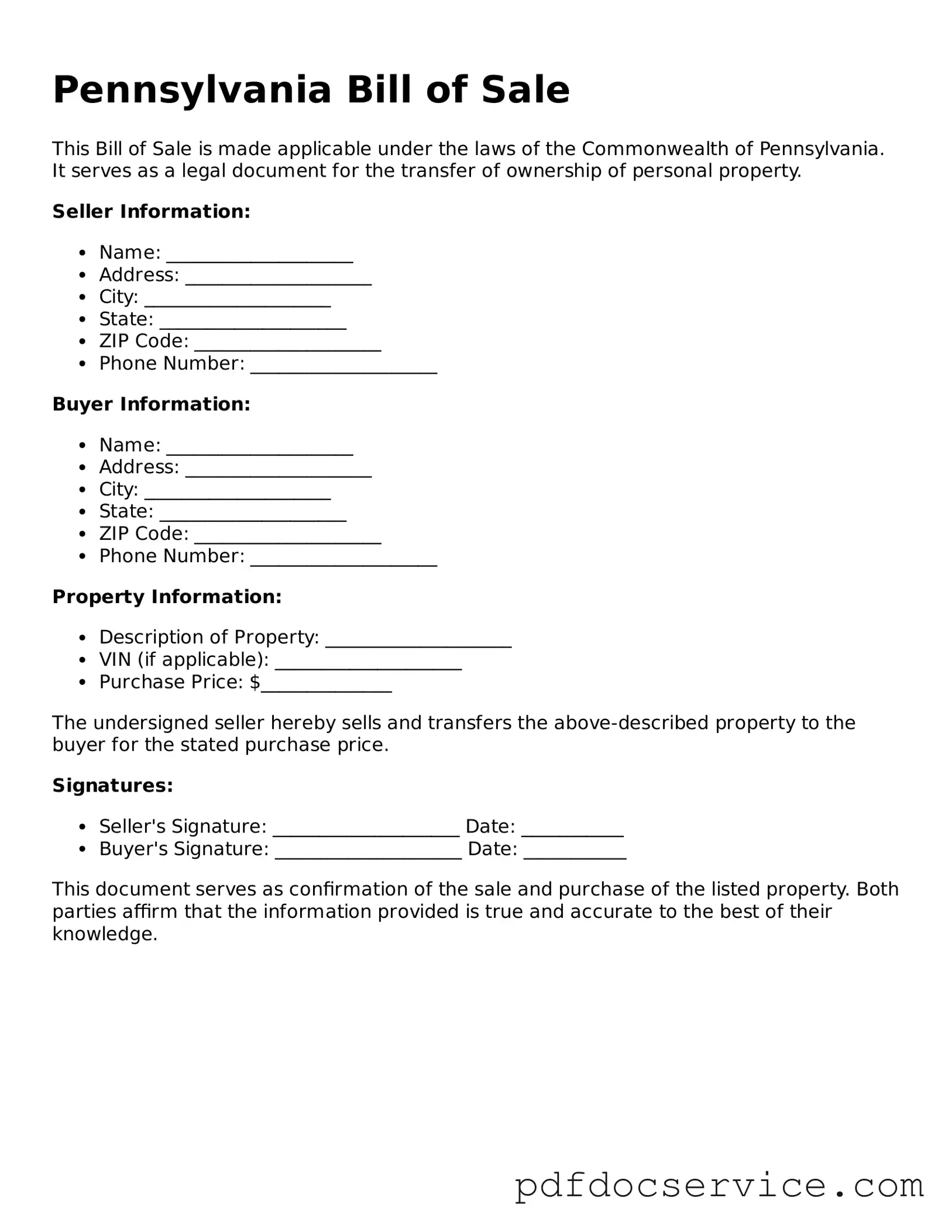What is a Pennsylvania Bill of Sale?
A Pennsylvania Bill of Sale is a legal document that serves as proof of the transfer of ownership of personal property from one party to another. This document is often used for transactions involving vehicles, boats, or other significant items. It outlines the details of the sale, including the parties involved, a description of the item, and the sale price.
When do I need a Bill of Sale in Pennsylvania?
A Bill of Sale is typically needed in Pennsylvania when you buy or sell personal property. This is especially important for vehicles, as it may be required for registration and titling purposes. It can also be useful for other items like trailers, boats, or valuable personal belongings to provide proof of ownership and protect both the buyer and seller in the transaction.
When creating a Bill of Sale, be sure to include the following information:
-
The names and addresses of both the buyer and seller
-
A detailed description of the item being sold, including make, model, year, and VIN for vehicles
-
The sale price
-
The date of the transaction
-
Any warranties or guarantees provided by the seller
Is a Bill of Sale required by law in Pennsylvania?
While a Bill of Sale is not legally required for every transaction in Pennsylvania, it is highly recommended, especially for significant items like vehicles. Having a Bill of Sale can help resolve disputes and serves as a record of the transaction. For vehicle sales, it may be necessary for registration and titling at the Department of Transportation.
Do I need to have the Bill of Sale notarized?
In Pennsylvania, notarization of a Bill of Sale is not required by law. However, having the document notarized can add an extra layer of authenticity and may be beneficial if there are any disputes in the future. It can also provide additional assurance to both parties involved in the transaction.
Can I use a generic Bill of Sale template?
Yes, you can use a generic Bill of Sale template, but it’s essential to ensure that it includes all necessary information specific to your transaction. Customizing the template to reflect the details of your sale will help ensure that it meets your needs and complies with Pennsylvania laws.
What should I do with the Bill of Sale after the transaction?
After completing the transaction, both the buyer and seller should keep a copy of the Bill of Sale for their records. This document serves as proof of the sale and can be useful for future reference, especially if there are any questions about ownership or if the item is sold again in the future.
You can obtain a Pennsylvania Bill of Sale form from various sources. These include online legal document services, local legal offices, or even the Pennsylvania Department of Transportation for vehicle-related sales. Ensure that the form you choose is appropriate for the type of property being sold.

